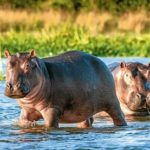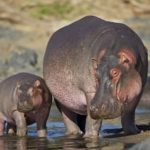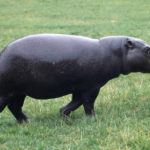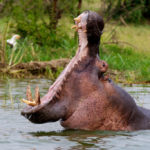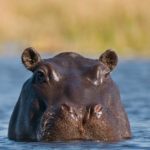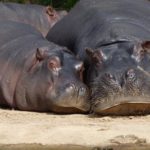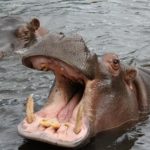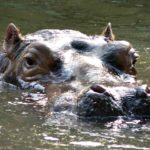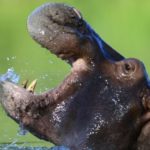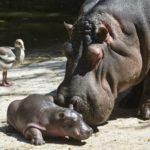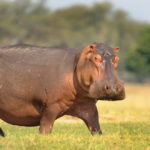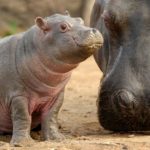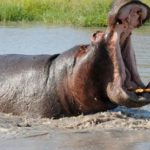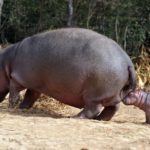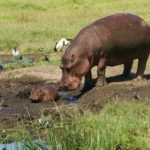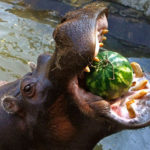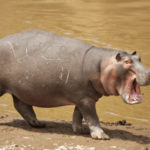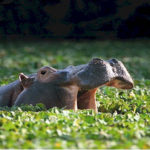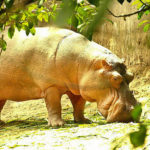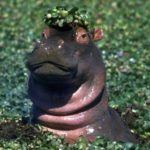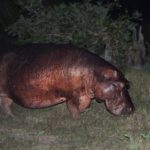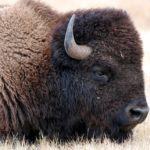Facts about hippos
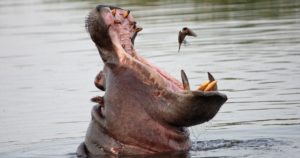 The hippo is one of the largest land animals on our planet. Its weight sometimes reaches 4 tons. This amazing animal lives in the vastness of Africa and leads a semi-aquatic life.
The hippo is one of the largest land animals on our planet. Its weight sometimes reaches 4 tons. This amazing animal lives in the vastness of Africa and leads a semi-aquatic life.
Europeans first learned about hippopotamuses back in the period of antiquity. These animals were mentioned by the Greeks and Romans in the mid-5th century BC. Although it has been known for a long time about hippos, many interesting facts were revealed only with the development of science and were discovered not so long ago.
- An adult male hippo can easily eat a 3 meter long crocodile.
- Hippos, when immersed in water, tightly close the nostrils.
- The power of the hippo bite is 230 kilograms.
- Proportional head of the hippo is one of the biggest goals in the world.
- Possessing huge lungs, the hippopotamus can hold its breath for up to 5 minutes.
- The mouth of the hippo can open almost 120 centimeters.
- Hippos and whales have descended from a common ancestor.
- Hippos can make sounds, both above water, and under water.
- Hippos also hear over water and under water.
- All hippos are born in water.
- In search of suitable food, hippopotami can pass 10 km per night.
- The older the female or male, the more weight they have.
- Going ashore, the hippopotamuses lose more water than any other mammals.
- Hippos live exclusively in fresh water and are absolutely not adapted for living in salt water.
- Although the hippopotamus is only half as small as an elephant, it only needs one-sixth of what the elephant eats to eat. Overnight it is about 50 kilograms.
- Grass hippos plait their lips. At the same time, tusks do not apply to eating food.
- At short distances, hippos can reach speeds of up to 30 km / h.
- The hippopotamus has one of the toughest skin on the planet.
- In hot weather or when a hippopotamus is in the sun for a long time, its skin turns pink. It is not a tan, but a special substance that is secreted from the skin to protect against skin burning.
- The hippo’s skin has antibiotic properties, it promotes disinfection and rapid healing of wounds.
- The most dangerous animals in Africa for a person is not a lion or a crocodile, but a hippopotamus.
- The lifespan of the hippopotamus depends directly on the wear of the teeth. If the teeth are completely erased, the animal will not be able to chew food, as a result of which it will die of hunger.
- In the wild, the adult hippopotamus has practically no enemies. The extraction of a lion or crocodile can only become a weak animal or calf.
- The hippopotamus never consumes aquatic vegetation. They graze only on land.
- The skin of hippopotamuses in many African countries was used and used for making different crafts. For example, for circles on which diamonds are processed.
